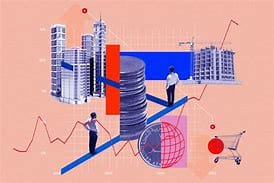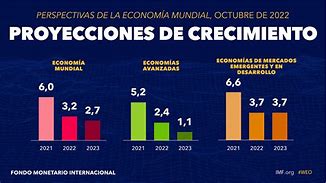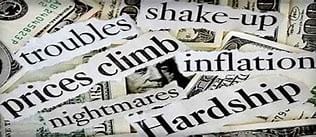Economic Recession: Expert Predictions


Oke, berikut paragraf pembuka artikel SEO Friendly tentang “Economic Recession: Expert Predictions,” dengan setidaknya 300 kata dan menggunakan bahasa Inggris:
Title: Economic Recession: Expert Predictions & What They Mean for You
Introduction:
The global economy is facing an unprecedented period of uncertainty. Rising inflation, supply chain disruptions, and geopolitical tensions have all contributed to a climate of economic anxiety. In this environment, the prospect of a recession looms large, with experts offering a range of predictions and forecasts. While the future remains unclear, understanding the current landscape and potential scenarios is crucial for individuals, businesses, and policymakers alike.
This article dives into the latest expert predictions on an economic recession, examining the factors driving the debate and the potential consequences for different stakeholders. We will analyze the various economic indicators, assess the risks and opportunities, and explore what these predictions mean for your personal finances and investments. By providing insights into the perspectives of leading economists, analysts, and policymakers, we aim to offer a comprehensive overview of the economic outlook and equip readers with the information they need to navigate this turbulent period.
Understanding the current state of the global economy, particularly the challenges posed by rising inflation and the potential for a recession, is crucial for individuals and businesses alike. While expert predictions may vary, the consensus points to a growing risk of economic downturn in the near future.
This article delves into the specifics of these expert predictions, outlining the key factors driving the potential for a recession and the possible implications for different sectors. It is vital to grasp the broader context of these predictions, as well as their potential impact on your financial planning, investment decisions, and overall financial security.
This piece will equip you with the necessary information to understand the economic landscape and its potential impact on your life, enabling you to make informed decisions and navigate the challenges that lie ahead.
Economic Recession: Expert Predictions
The specter of an economic recession looms large in the minds of many, as global economic conditions remain uncertain and volatile. While some economists predict a smooth landing, others warn of impending economic turmoil. Understanding the current economic landscape, expert predictions, and potential impacts is crucial for individuals, businesses, and governments alike.
What is an Economic Recession?
An economic recession is generally defined as a significant decline in economic activity, characterized by a widespread contraction in various sectors of the economy. The most common definition involves two consecutive quarters of negative GDP growth , indicating a sustained period of economic decline.
Recession vs. Depression:
While both recession and depression involve economic downturns, a depression is significantly more severe and prolonged, characterized by a deep and prolonged decline in economic activity, often accompanied by high unemployment, deflation, and widespread financial distress.
Key Indicators of a Recession:
Several key economic indicators can signal an impending recession. These include:
- Unemployment rates: Rising unemployment rates indicate a decline in job creation and economic activity.
- Consumer spending: Decreases in consumer spending signal a slowdown in consumer demand, impacting businesses and economic growth.
- Industrial production: A decline in industrial production indicates a contraction in manufacturing activity, affecting supply chains and overall economic output.
The Current Economic Landscape and Recession Predictions
The global economy faces numerous challenges, including:
- Inflation: Persistent high inflation has eroded consumer purchasing power, leading to decreased spending and potentially impacting economic growth.
- Supply chain disruptions: Ongoing disruptions in global supply chains have driven up prices and hampered production, contributing to economic uncertainty.
- Geopolitical tensions: The ongoing war in Ukraine, geopolitical tensions, and other conflicts have created volatility in global markets and impacted economies worldwide.
Expert Opinions on Recession Probability:
While the likelihood of a recession remains a subject of debate among economists, many experts express concerns about the current economic outlook.
- The International Monetary Fund (IMF) has warned of a significant slowdown in global economic growth, with a heightened risk of recession.
- The World Bank has also lowered its global growth forecast, citing inflation, rising interest rates, and the war in Ukraine as major challenges.
- Prominent economists like Paul Krugman and Larry Summers have voiced concerns about recessionary pressures, highlighting the potential impact of inflation and interest rate hikes.
Expert Predictions on Recession Severity:
If a recession were to occur, experts offer varying predictions regarding its severity and duration. Some analysts believe it could be a mild and short-lived recession, while others anticipate a deeper and more prolonged downturn.
- The Federal Reserve has indicated a willingness to raise interest rates aggressively to combat inflation, potentially impacting economic growth and contributing to recessionary pressures.
- Some economists predict that a recession could be relatively shallow and quickly followed by a rebound, while others warn of a protracted period of economic contraction.
Factors Contributing to Recession Fears
Several factors contribute to the growing concerns about an economic recession:
Inflation and Interest Rate Hikes:
Rising inflation has eroded consumer spending power and forced central banks to raise interest rates to curb inflation. While higher interest rates can help control inflation, they can also slow economic growth by making borrowing more expensive for businesses and consumers.
Supply Chain Disruptions:
The ongoing disruptions in global supply chains have created bottlenecks, increased production costs, and contributed to inflation. These disruptions have also hampered economic activity, impacting both businesses and consumers.
Geopolitical Tensions:
Geopolitical tensions, such as the war in Ukraine, have created uncertainty in global markets and disrupted supply chains. These tensions have also fueled inflation and impacted economic growth.
Potential Impacts of a Recession
An economic recession can have significant impacts on various aspects of the economy, including:
Impact on Employment:
A recession typically leads to job losses, as businesses cut costs and reduce hiring in response to decreased demand. This can result in increased unemployment rates, wage stagnation, and reduced economic activity.
Impact on Businesses:
Businesses face numerous challenges during a recession, including:
- Decreased demand for goods and services.
- Reduced profits and revenue.
- Increased costs of borrowing and operation.
- Potential business closures.
Impact on Consumers:
Consumers are significantly affected by a recession, experiencing:
- Reduced purchasing power due to inflation and wage stagnation.
- Increased financial hardship, including potential job losses and reduced income.
- Increased debt burdens due to borrowing to meet expenses.
How to Prepare for a Potential Recession
While a recession cannot be completely avoided, individuals and businesses can take steps to prepare for potential economic downturns:
Building an Emergency Fund:
Having an emergency fund can provide a financial buffer during a recession, allowing individuals to weather job losses, income reductions, or unexpected expenses.
Managing Debt:
Managing debt effectively is crucial during a recession, as increased financial strain can make it difficult to make payments. Consider strategies like consolidating debt or negotiating payment plans.
Diversifying Investments:
Diversifying investments can help mitigate potential losses during a recession. Investing across different asset classes, such as stocks, bonds, and real estate, can reduce risk and potentially preserve capital.
Developing a Budget:
Developing a sound budget and tracking expenses is essential during times of economic uncertainty. This can help individuals identify areas where spending can be reduced and prioritize essential expenditures.
Conclusion
The current economic landscape is uncertain, and the possibility of a recession remains a concern. While expert opinions vary regarding the likelihood and severity of a recession, it is important to remain informed about economic trends and potential risks. By taking proactive steps to prepare for a potential downturn, individuals and businesses can mitigate potential financial hardship and navigate economic challenges more effectively.
Staying informed, building financial resilience, and making informed decisions are essential for weathering economic storms. Remember, preparation is key to navigating economic uncertainty.


